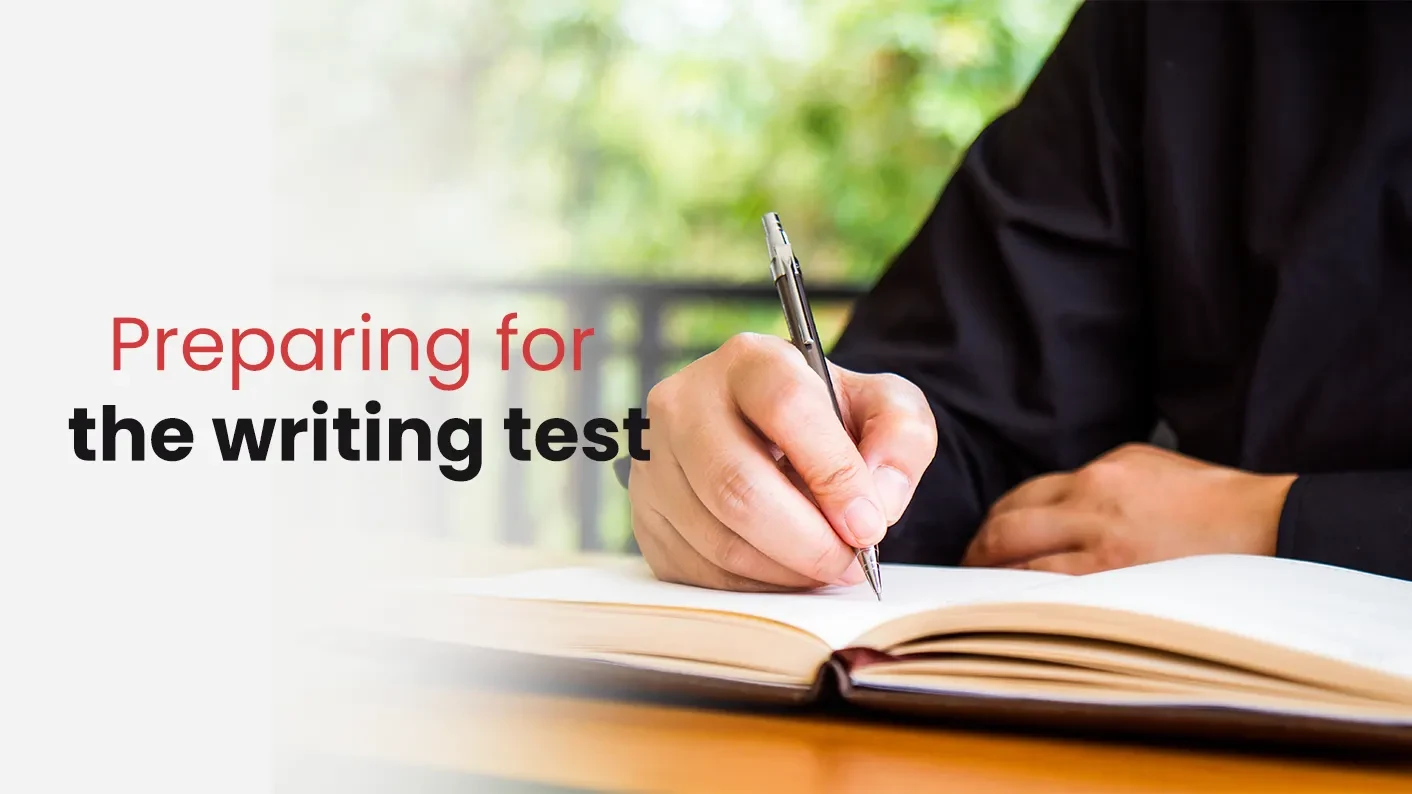
IELTS preparation can be challenging, but there are several online resources available that can help individuals prepare for the exam, including free online mock tests that use a computer-based system. For the candidates to practice online, we have designed a free IELTS online mock test platform - www.Ielts.live, that exactly simulates the Computer Delivered test - CD IELTS. There are several practice tests, free courses and articles on this site. Particularly, for the candidates who are preparing for the recent exam in 2023, this online test platform helps a lot.
One of the main benefits of computer-based mock tests is the convenience and flexibility they offer. Test-takers can access these practice tests from anywhere, at any time, and can take them at their own pace. This flexibility is particularly useful for individuals who have busy schedules and cannot commit to a regular study routine.
Another advantage of computer-based practice tests is that they provide instant feedback and results. After completing a mock test, test-takers can immediately see their scores and identify areas that require improvement. This feedback allows individuals to adjust their study strategies and focus on areas that need improvement.
Additionally, computer-based mock tests closely simulate the actual IELTS exam, providing test-takers with a realistic exam experience. This experience can help reduce test anxiety and build confidence in test-takers, ensuring they are better prepared for the actual exam. The free online practice tests and the mock tests on the website have been designed to simulate the actual CD IELTS you face at British Council and IDP IELTS testing system.
When preparing for the IELTS exam using computer-based mock tests, it is important to ensure that the IELTS practice tests are of high quality and provided by reputable organizations. These tests should closely simulate the actual exam, provide a range of difficulty levels, and be timed appropriately to help individuals practice their time-management skills.
In conclusion, computer-based IELTS practice tests are an essential tool for IELTS preparation. They offer convenience and flexibility, provide instant feedback and results, and closely simulate the actual exam experience. By taking advantage of these online resources, individuals can better prepare themselves for the IELTS exam and increase their chances of success.
Why Mock Tests are important
Before taking the actual exam, it is highly recommended to take IELTS mock tests. Here, we will discuss why IELTS mock exams are important.
Firstly, IELTS mock tests provide individuals with an opportunity to practice and become familiar with the exam format. The test has four sections: reading, writing, listening, and speaking. Mock tests allow individuals to experience the exam's structure and time limits, which helps them develop strategies for managing their time during the actual test. This helps to alleviate exam stress and anxiety, allowing individuals to perform better in the actual exam.
Secondly, mock exams are an excellent way to evaluate one's strengths and weaknesses. After taking a mock test, individuals can assess their performance and identify the areas in which they need to improve. For instance, someone may discover that they struggle with the reading section, where they lose valuable points due to time constraints or not understanding the questions. This knowledge allows them to focus their efforts on improving their reading skills.
Thirdly, mock tests enable individuals to receive feedback from experienced examiners. Mock test providers usually have experienced examiners who will evaluate and provide feedback on the test taker's performance. This feedback can help the individual to understand their mistakes and how to avoid them in the actual exam. This is especially important for the writing and speaking sections, where the examiner's feedback can help individuals understand how to structure their answers or improve their pronunciation.
Finally, the IELTS mock tests are an excellent way to build confidence. Knowing that one has prepared for the exam, practiced time management strategies, identified their strengths and weaknesses, and received feedback from experienced examiners can significantly increase an individual's confidence when taking the actual exam. This helps to reduce exam anxiety and allows the test-taker to perform to the best of their ability.
In conclusion, IELTS mock exams are essential for anyone preparing to take the IELTS exam. They provide an opportunity to practice and become familiar with the exam format, evaluate one's strengths and weaknesses, receive feedback from experienced examiners, and build confidence. Therefore, individuals preparing to take the IELTS exam should take advantage of mock tests to ensure they are adequately prepared for the actual exam
Top 10 reasons how mock tests or the practice materials help

Practicing with authentic materials is crucial for achieving success. There are hundreds of sources claiming to be the best and authenticated, later proven to have a lot of flaws. So, before taking the mock test, you should check the authenticity of the contents and their sources. Below are the top ten reasons why IELTS practice materials help:
- Reinforces Knowledge: Practice materials help reinforce knowledge learned in class or through self-study. Practicing with material that covers the same topics and concepts helps solidify understanding.
- Develops Skills: IELTS practice materials are designed to develop skills, such as critical thinking, problem-solving, and decision-making.
- Builds Confidence: Practicing with materials and seeing improvement in skills and knowledge boosts confidence and provides a sense of accomplishment.
- Identifies Weaknesses: Practice materials help identify areas where an individual may be struggling, allowing them to focus on those areas and improve.
- Increases Speed: Practicing with timed practice tests can help increase speed and efficiency in completing tasks, such as taking exams or completing assignments.
- Improves Accuracy: Practicing with materials designed to test accuracy, such as grammar or math problems, helps improve accuracy and reduce errors.
- Provides Feedback: Practice materials often come with feedback, allowing individuals to see where they went wrong and learn from their mistakes.
- Enhances Test-Taking Skills: Practice materials specific to exams help develop test-taking skills, such as time management, understanding the format, and knowing how to answer questions effectively.
- Helps with Retention: Practice materials help with retaining information by providing repeated exposure to the same concepts and information.
- Prepares for Real-Life Scenarios: Practice materials that simulate real-life scenarios help individuals prepare for situations they may encounter in their careers or personal lives.
In conclusion, practice materials are an essential component of learning and improving skills. They reinforce knowledge, develop skills, build confidence, identify weaknesses, increase speed and accuracy, provide feedback, enhance test-taking skills, help with retention, and prepare for real-life scenarios. Incorporating practice materials into your study routine can lead to success and achieve your goals.
IELTS Reading mock- preparing for the reading test
The IELTS reading test is one of the four modules in the IELTS exam, and it measures a candidate's ability to comprehend and interpret written English. Below I will discuss the format of the IELTS reading test, strategies to improve your reading skills, and some tips for success on test day. As the IELTS reading test can be a bit daunting, but don't worry - with a bit of preparation, you'll be able to tackle it with ease!
Now, when it comes to preparing for the IELTS reading test, there are a few things you can do. Firstly, make sure you're familiar with the types of questions you'll encounter in the test. These include multiple choice, matching, and true/false/not given questions, among others. You'll also want to work on your reading speed and comprehension skills, as the test is quite time-limited.
One great way to prepare for the IELTS reading test is to take a mock test. This will give you a chance to see what the test is really like, and to practice your skills in a realistic environment. There are plenty of IELTS reading mock tests available online, so it shouldn't be too difficult to find one that suits your needs. There are several reading mock tests you will find on.
When you're taking the mock test, try to simulate the real testing conditions as closely as possible. Find a quiet place to work, and set yourself a timer for 60 minutes. Try to answer each question as quickly and accurately as possible, and don't spend too much time on any one question. Remember, the IELTS reading test is designed to test your ability to skim and scan for information, so don't worry too much about getting every single question right.
Overall, the IELTS reading mock test is a great way to prepare for the real thing. Just remember to stay calm and focused, and to practice your reading skills as much as possible before the test. Good luck!
IELTS Writing mock- preparing for the writing test

IELTS Writing mock tests provide candidates with the opportunity to practice their writing skills, become familiar with the test format, and identify areas that require improvement. In this essay, we will discuss how to prepare for writing task 1 and 2, the importance of IELTS writing mock tests, and how to make the most of your practice time.
Writing mock tests are an essential part of preparing for the IELTS writing exam. They simulate the actual test conditions, giving candidates a feel for the pace and pressure of the exam. Mock tests also help candidates to become familiar with the test format and question types. This familiarity can reduce anxiety and increase confidence on test day.
The IELTS writing test is split into two sections: Task 1 and Task 2. Task 1 requires you to write a short report or letter based on a given prompt, while Task 2 asks you to write an essay on a given topic. You'll have 60 minutes to complete both tasks, so it's important to manage your time effectively.
To prepare for IELTS writing mock tests, candidates should first familiarize themselves with the test format and question types. For Task 1, you might be asked to write a report based on a graph or chart, or to write a letter to a friend or colleague. For Task 2, you'll be given a topic to write about, and you'll need to provide your own argument and examples. One great way to practice for Task 2 is by brainstorming a list of topics that might come up on the test. This will help you get comfortable with generating ideas quickly, and will also give you a chance to practice your writing skills on a variety of subjects. You can also try writing outlines or short paragraphs on each topic, so you're ready to tackle whatever comes up on the test.
There are a variety of resources available, including Cambridge official IELTS practice materials, Barrons, Collins, etc., and online resources as practice questions and sample answers. Candidates should also aim to read a variety of materials, such as academic papers, news articles, and essays, to improve their writing skills.
When taking a mock test, candidates should simulate the test conditions as closely as possible. This means finding a quiet, distraction-free environment, setting a timer for the allotted time, and avoiding interruptions or breaks during the test. Candidates should also use the same materials they plan to use on test day, such as a pen or pencil and paper or a computer.
After completing the mock test, candidates should review their writing and identify areas that require improvement. They should also identify their strengths and weaknesses, and adjust their study plan accordingly. For example, if a candidate struggled with grammar and vocabulary, they should focus on studying these areas in their future practice.
In addition to taking mock tests, candidates can improve their writing skills by practicing daily. Writing a variety of materials, such as essays, letters, and reports, can help to improve grammar, vocabulary, and coherence. Candidates should also aim to read examples of high-scoring writing, to gain an understanding of what makes a strong piece of writing.
In conclusion, taking IELTS writing mock tests is an essential part of preparing for the exam. Candidates should prepare for mock tests by familiarizing themselves with the test format and question types, simulating the test conditions as closely as possible, and practicing their writing skills daily. By following these strategies, candidates can increase their chances of success on the IELTS writing exam.
IELTS Speaking mock- preparing for speaking test
One great way to get ready for the test is by taking a mock test. This will give you a chance to practice your speaking skills in a realistic setting, and to get a sense of what the test is like. In this essay, we'll explore the benefits of taking an IELTS listening mock test and provide some helpful tips and strategies for acing this important part of the exam.
The IELTS speaking test is made up of three parts, and you'll have around 11-14 minutes to complete it. In Part 1, you'll be asked some general questions about yourself and your interests. In Part 2, you'll be given a topic to talk about for 1-2 minutes, and in Part 3, you'll have a discussion with the examiner about the topic in more depth.
When it comes to taking a mock test, there are a few things you should keep in mind. Firstly, make sure you're comfortable speaking English in a variety of situations. You can practice speaking with friends or language exchange partners, or even record yourself speaking and listen back to it to identify areas for improvement.
You can also find IELTS speaking mock tests online, which will give you a chance to practice your skills in a more formal setting. Try to simulate the real testing conditions as closely as possible, by finding a quiet place to work and timing yourself.
When it comes to Part 2 of the test, it's important to practice giving structured answers. You should aim to provide an introduction, a main point, and some supporting details or examples. Try to keep your answer focused on the topic, and avoid rambling or going off on tangents.
In Part 3, you'll have a chance to demonstrate your ability to discuss abstract ideas and concepts. Make sure to listen carefully to the examiner's questions, and provide thoughtful, well-reasoned answers.
Overall, the IELTS speaking mock test is a great way to prepare for the real thing. Just remember to stay calm, speak clearly and confidently, and practice your speaking skills as much as possible. Good luck!
IELTS listening mock- preparing for listening test
If you're getting ready for the IELTS listening test, you might be wondering how to prepare effectively. By taking a sample exam, you can find out what to anticipate on test day, practice listening in a realistic session, and pinpoint your areas of improvement. This post will discuss the advantages of taking an IELTS listening practice test, offer advice for good preparation, and discuss how to remain confident and focused when taking the test.
The IELTS listening test is made up of four sections, and you'll have around 30 minutes to complete it. In each section, you'll listen to a recording and answer some questions based on what you hear. The recordings are played only once, so it's important to listen carefully and take notes as you go.
When it comes to taking a mock test, there are a few things you should keep in mind. Firstly, make sure you're comfortable listening to English in a variety of situations. You can practice listening to podcasts, watching movies or TV shows in English, or even eavesdropping on conversations around you to get a sense of how the language is used in everyday situations.
You can also find IELTS listening mock tests online, which will give you a chance to practice your skills in a more formal setting. Try to simulate the real testing conditions as closely as possible, by finding a quiet place to work and timing yourself.
One important thing to keep in mind is that the recordings in the IELTS listening test cover a wide range of accents and dialects. You might hear speakers from different parts of the world, and they might speak at different speeds or use different vocabulary. It's important to get comfortable with this diversity of accents and dialects, so you're prepared for whatever comes up on the test.
Here are some examples of the types of questions you might encounter in the IELTS listening test:
Multiple choice: You'll be given a question and a set of options, and you'll need to choose the correct answer based on what you hear in the recording.
Note completion: You'll be given a set of notes with missing information, and you'll need to fill in the blanks based on what you hear in the recording.
Matching: You'll be given a set of items and a list of descriptions, and you'll need to match the items to the correct descriptions based on what you hear in the recording.
Overall, the IELTS listening mock test is a great way to prepare for the real thing. Just remember to listen carefully, take notes as you go, and practice your listening skills as much as possible. Good luck!




0 COMMENTS